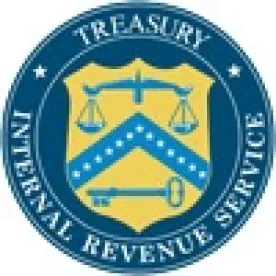The Internal Revenue Service (IRS) recently modified the non-willfulness certification form that individual taxpayers must submit to enroll in the streamlined filing compliance procedures (SFCP). SFCP is a program offered by the IRS to individuals who have not previously disclosed foreign assets to the U.S. government.
The IRS introduced SFCP in June 2014 as an alternative to its existing Offshore Voluntary Disclosure Program (OVDP), which was designed more for taxpayers who willfully failed to disclose foreign assets. Specifically, SFCP is intended to cover individual taxpayers who non-willfully failed to disclose foreign assets (e.g., they did not know about the requirement or their ownership interest in foreign assets).
The IRS has created two separate tracks for taxpayers wishing to enroll in SFCP—one track for taxpayers who reside in the United States (hereinafter “resident SFCP track”) and another track for taxpayers who reside outside the United States (hereinafter “non-resident SFCP track”). The eligibility requirements for the separate tracks have some notable variations. The threshold eligibility inquiry is the taxpayer’s residency. A taxpayer will be treated as not residing in the United States if, in any one or more of the most recent three years for which the U.S. tax return due date (or properly applied for extended due date) has passed, the taxpayer did not have a U.S. abode and the taxpayer was physically outside the United States for at least 330 full days.
If the taxpayer meets the non-residency test, then the taxpayer may enter the non-resident SFCP track, provided the taxpayer can certify that: (1) he or she failed to report income from a foreign financial asset and pay tax as required by U.S. law [and may have failed to file a report of foreign bank and financial accounts (FBAR)]; and (2) such failures resulted from non-willful conduct.
However, if the taxpayer fails the non-residency test, then the taxpayer must enroll in the resident SFCP track. The resident SFCP track imposes more stringent eligibility requirements. That is, the taxpayer must be able to certify that: (1) he or she has previously filed a U.S. tax return tax return (if required) for each of the most recent three years for which the U.S. tax return due date (or properly applied for extended due date) has passed; (2) he or she has failed to report gross income from a foreign financial asset and pay tax as required by law (and may have failed to file an FABR and/or one or more international information returns); and (3) such failures resulted from non-willful conduct.
If a taxpayer can certify that he or she meets the eligibility requirements, then the taxpayer may make a voluntary disclosure as part of the SFCP program. The non-resident SFCP track requires the taxpayer to submit, in addition to filing any delinquent FBARs for each of the most recent six years for which the FBAR due date has passed: (1) delinquent or amended tax returns, together with all required information returns for each of the most recent three years for which the U.S. tax return due date (or properly applied for extended due date has passed); (2) the full amount of the tax and interest due in connection with the delinquent or amended returns; and (3) a completed and signed Certification by U.S. Person Residing Outside of the U.S. (Form 14653). Taxpayers who enter the non-resident SFCP track are generally not subject to failure-to-file and failure-to-pay penalties, accuracy-related penalties, information return penalties, FBAR penalties, or a Title 26 miscellaneous offshore penalty.
The resident SFCP track has similar disclosure requirements. Specifically, in addition to filing any delinquent FBARs for each of the most recent six years for which the FBAR due date has passed, the taxpayer must submit: (1) amended tax returns, together with all required information returns for each of the most recent three years for which the U.S. tax return due date (or properly applied for extended due date has passed); (2) the full amount of the tax and interest due in connection with the amended returns; (3) a completed and signed Certification by U.S. Person Residing In the U.S. (Form 14654); and (4) the Title 26 miscellaneous offshore penalty (which is equal to 5 percent of the highest aggregate year-end balance/value of the taxpayer’s foreign financial assets that are in the SFCP penalty base). However, taxpayers who enter the resident SFCP track are generally not subject to failure-to-file and failure-to-pay penalties, accuracy related penalties, information return penalties or FBAR penalties.
Besides the residency test, the key differences between the non-resident and resident SFCP tracks are: (1) only non-resident SFCP track participants may submit delinquent U.S. tax returns; and (2) non-resident SFCP track participants are not subject to a Title 26 miscellaneous offshore penalty.
Nevertheless, taxpayers in the non-resident and resident SFCP tracks must submit either a Form 14653 or a Form 14654. Both forms include the certifications that the taxpayer must make in order to participate in the respective SFCP track. One certification that appears on both forms is that the taxpayer’s failure to disclose foreign assets due to non-willful conduct. As part of such certification, the taxpayer must provide specific facts and reasons (generally on a signed attachment) why their conduct was non-willful.
The IRS revised Forms 14653 and 14654 early in 2016. In February 2016, the IRS added a section to Form 14653 requesting detailed information regarding presence outside the U.S. during the streamlined procedures submission period. Now, the IRS requests that U.S. citizens or lawful permanent residents indicate whether they were physically outside the United States for each year in the covered three-year period. Also, for joint submissions, the IRS states that both spouses filing a joint certification must meet the non-residency requirement. If the number of days physically outside of the United States differs for each spouse, then each spouse needs to disclose that on the chart on the Form 14653 or in an attachment thereto.
Also in February 2016, the IRS revised Forms 14653 and 14654 to change the directive to taxpayer’s that was provided in the prior versions of the forms which advised taxpayers to “provide specific reasons for your failure to report all income, pay all tax, and submit all required information returns, including FBARs. If you relied on a professional advisor, provide the name, address, and telephone number of the advisor and a summary of the advice.” This minimal direction caused the IRS to receive Forms 14653 and Form 14654 that it deemed did not provide adequate information, so the certifications were either questioned or rejected. Consequently, the IRS revised the advice to include more robust direction. Now the IRS also instructs the taxpayer to
Include the whole story including favorable and unfavorable facts. Specific reasons, whether favorable or unfavorable to you, should include your personal background, financial background, and anything else you believe is relevant to your failure to report all income, pay all tax, and submit all required information returns, including FBARs. Additionally, explain the source of funds in all of your foreign financial accounts/assets. For example, explain whether you inherited the account/asset, whether you opened it while residing in a foreign country, or whether you had a business reason to open or use it. And explain your contact with the account/asset including withdrawals, deposits, and investment/management decisions. Provide a complete story about your foreign financial account/asset. If you relied on a professional advisor, provide the name, address, and telephone number of the advisor and a summary of the advice.
Given the expanded advice by the IRS, taxpayers’ non-willfulness statements will undoubtedly be measured against a higher standard. Now, the IRS expects the taxpayer to disclose unfavorable facts (e.g., facts related to education, profession or previous conduct). Therefore, it will be necessary to draft a narrative in a manner that is most favorable to the taxpayer. This would include explaining why the favorable facts clearly overshadow the unfavorable facts, such as, “Even though the taxpayer is a CPA, she was unaware until 2 months ago that her parents opened and funded a foreign bank account for her when she was a child.” As a corollary, to the extent the taxpayer or taxpayer’s counsel does not feel comfortable the favorable facts clearly overshadow the unfavorable facts, enrolling in OVDP should be considered as an alternative along with potential opt-out consequences once in the OVDP program.




 />i
/>i

